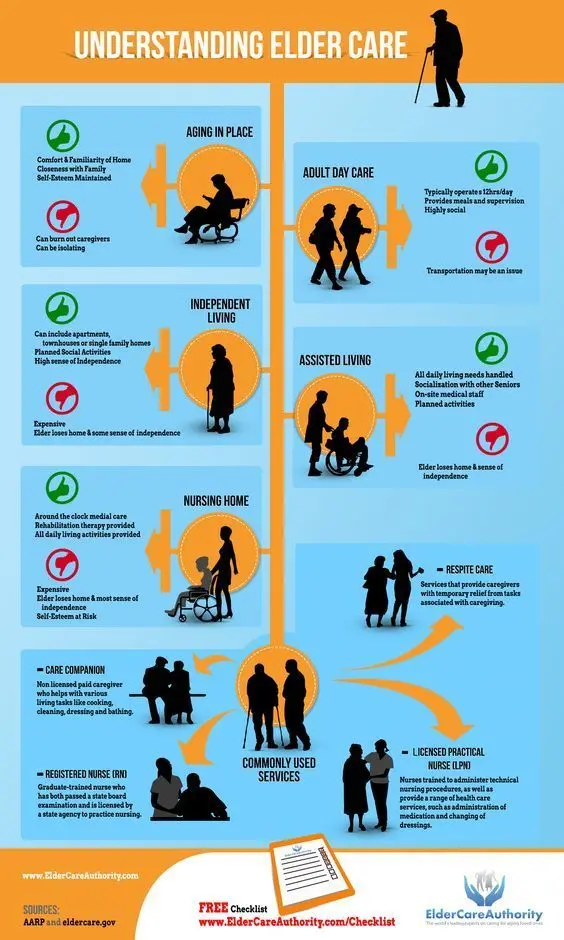Are you curious about the intricacies of elderly care? Allow us to shed some light on this crucial aspect of our society. In our article titled “Understanding Elderly Care,” we will explore the various aspects of caring for our elderly population, including what it entails and why it is so important. So, grab a cup of tea, sit back, and let us guide you through the fascinating world of elderly care.
This image is property of novahhc.com.
Elderly care refers to the support and assistance provided to older adults who may have difficulty performing daily activities. As people age, they may require additional help with tasks such as bathing, dressing, medication management, and household chores. Elderly care services are designed to ensure that older individuals can live comfortably and safely in their own homes or in specialized care facilities. It is a crucial aspect of ensuring the well-being and quality of life for the elderly population.
What is Elderly Care
Elderly care encompasses a wide range of services aimed at meeting the specific needs of older adults. These services can be provided in various settings, including the individual’s own home, assisted living facilities, nursing homes, or senior communities. The goal of elderly care is to ensure the physical, emotional, and social well-being of seniors by addressing their unique needs and providing a supportive environment.

This image is property of i.pinimg.com.
Elderly Care Services
Elderly care services are tailored to the individual needs of older adults. These services can include assistance with activities of daily living (ADLs) such as bathing, dressing, grooming, and meal preparation. Additionally, elderly care services may also include medication management, transportation to appointments, companionship, and social activities. The aim is to keep seniors engaged, independent, and safe while providing the necessary support to enhance their quality of life.
Types of Elderly Care Facilities
There are various types of elderly care facilities available to meet the different needs of older adults. Assisted living facilities provide a combination of housing, personal care services, and healthcare to individuals who can no longer live independently but do not require 24-hour medical supervision. Nursing homes, on the other hand, offer more extensive medical care and assistance for those with chronic illnesses or disabilities. Senior communities, also known as retirement communities, provide independent living options with a range of amenities and services specifically designed for older adults.

This image is property of www.homecare-aid.com.
Choosing the Right Elderly Care Option
Choosing the right elderly care option can be a challenging decision. It is important to consider the specific needs and preferences of the individual, the level of care required, the location and proximity to loved ones, and the cost involved. Factors such as the reputation and quality of care provided by the facility or service provider, as well as the overall environment and atmosphere of the setting, should also be taken into account. Consulting with healthcare professionals, family members, and trusted advisors can help in making an informed choice.
Legal and Financial Considerations
When it comes to elderly care, there are a number of legal and financial considerations to keep in mind. Long-term care insurance, for example, can help cover the costs associated with elderly care services, including in-home care and facility-based care. Medicaid and Medicare programs may also provide financial assistance, but eligibility requirements and coverage vary. It is advisable to consult with an attorney specializing in elder law to ensure legal documents, such as advance directives and power of attorney, are in place to protect the elderly individual’s interests and wishes.
Understanding Elderly Caregivers
Elderly caregivers play a vital role in providing support and assistance to older adults. Caregivers may be family members, friends, or professional caregivers hired through elderly care agencies. These individuals provide essential assistance with day-to-day activities, manage medications, offer companionship, and ensure the safety and well-being of the older adult. It is important to recognize and appreciate the efforts of caregivers, as they often face physical, emotional, and financial challenges in fulfilling their caregiving responsibilities.
Challenges in Elderly Care
Elderly care can present various challenges. One of the most common challenges is the physical and emotional strain experienced by caregivers who may have to manage their own responsibilities along with the demands of caregiving. Additionally, older adults may face difficulties in adjusting to new environments or accepting assistance. Communication barriers, financial constraints, and the potential for abuse or neglect are some other challenges that may arise in the elderly care context. Awareness and proactive measures can help address and overcome these challenges.

This image is property of www.samvednacare.com.
The Importance of Communication in Elderly Care
Effective communication is crucial in elderly care settings. It is important to establish open and honest lines of communication between the elderly individual, their caregivers, and healthcare professionals. Active listening, empathy, and clear instructions can help ensure that the needs and concerns of older adults are understood and addressed appropriately. Regular communication can also help detect any changes in health or well-being, allowing for timely intervention and support.
The Benefits of Elderly Care Technology
In recent years, technology has played a significant role in improving elderly care. Assistive devices, such as wearable health monitors and fall detection systems, can enhance the safety and well-being of older adults. Telemedicine services allow for remote medical consultations, reducing the need for frequent trips to healthcare facilities. Social media platforms and video calling applications enable seniors to stay connected with loved ones, reducing feelings of isolation and loneliness. The integration of technology in elderly care can greatly improve the quality of life for older adults and provide peace of mind for their caregivers.
In conclusion, understanding elderly care is essential for ensuring the well-being and quality of life for older adults. It involves a range of services and considerations aimed at meeting the specific needs of each individual. By selecting the right care options, addressing legal and financial matters, valuing caregivers, and leveraging the benefits of technology, we can provide adequate support and enhance the lives of our elderly loved ones.


